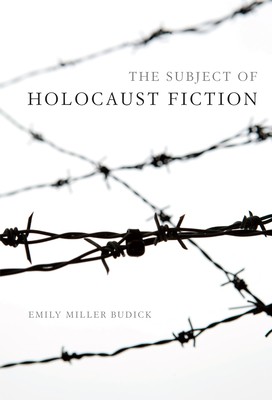
- We will send in 10–14 business days.
- Author: Emily Miller Budick
- Publisher: Indiana University Press
- ISBN-10: 0253016266
- ISBN-13: 9780253016263
- Format: 15.2 x 22.9 x 1.9 cm, hardcover
- Language: English
- SAVE -10% with code: EXTRA
Reviews
Description
Fictional representations of horrific events run the risk of undercutting efforts to verify historical knowledge and may heighten our ability to respond intellectually and ethically to human experiences of devastation. In this captivating study of the epistemological, psychological, and ethical issues underlying Holocaust fiction, Emily Miller Budick examines the subjective experiences of fantasy, projection, and repression manifested in Holocaust fiction and in the reader's encounter with it. Considering works by Cynthia Ozick, Art Spiegelman, Aharon Appelfeld, Michael Chabon, and others, Budick investigates how the reading subject makes sense of these fictionalized presentations of memory and trauma, victims and victimizers.
EXTRA 10 % discount with code: EXTRA
The promotion ends in 17d.17:58:53
The discount code is valid when purchasing from 10 €. Discounts do not stack.
- Author: Emily Miller Budick
- Publisher: Indiana University Press
- ISBN-10: 0253016266
- ISBN-13: 9780253016263
- Format: 15.2 x 22.9 x 1.9 cm, hardcover
- Language: English English
Fictional representations of horrific events run the risk of undercutting efforts to verify historical knowledge and may heighten our ability to respond intellectually and ethically to human experiences of devastation. In this captivating study of the epistemological, psychological, and ethical issues underlying Holocaust fiction, Emily Miller Budick examines the subjective experiences of fantasy, projection, and repression manifested in Holocaust fiction and in the reader's encounter with it. Considering works by Cynthia Ozick, Art Spiegelman, Aharon Appelfeld, Michael Chabon, and others, Budick investigates how the reading subject makes sense of these fictionalized presentations of memory and trauma, victims and victimizers.


Reviews